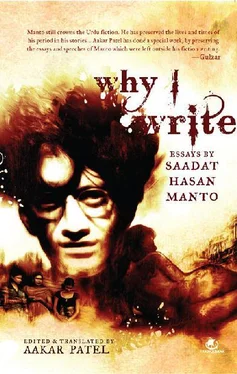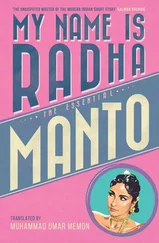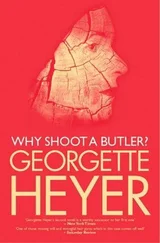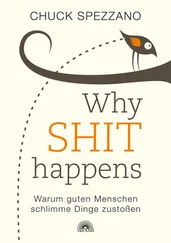On top of all this it had scenes of telepathy that Miyan Kardar loved and which produced magic at the box office. Zindagi is a good film because P C Barua made it and New Theatres produced it. And because it stars Saigal and Jamuna.
How shall I describe the film? Let me try. Many trains come from Peshawar to Bombay. Some of them are express, and some very slow. If you are fine with going to Peshawar from Bombay by the latter, even if it takes you ten or fifteen days, you will like Zindagi . Think of it as still waters in which there is movement only when a leaf should fall. It’s a road on which no car is ever seen. It goes straight, on and on, till death.
The screenplay is written as if the author is walking slowly along a straight line that he has drawn himself. And in the end, with a thud, he falls over a cliff.
And so — Zindagi . In my view, life’s problem is with, and its objection is to, death. But it seems here in this movie that life is on its knees before death. This film is the funeral of life, borne on Barua’s shoulders. It should be said here that the dead are very heavy.
Many times in the film one notices that Barua has tired of his burden. He’s out of breath and sitting in the shade of a tree to recuperate.
Me, I like action. I like seeing things that are fast. Things which excite me, like cars driven at full speed, trains hurtling along. I like these. I think they are the essential part of what I think of as life and living.
This is why may be, on seeing Zindagi , I felt no excitement. In fact, I felt nothing. I came out of the hall feeling what I had felt on entering it.
I had gone to see life — what I saw instead was death.
Now I accept that death is the destination of life. But isn’t even death full of life? Death isn’t always dead. Death which slowly crushes life in its hands, which stills the bubbling of life’s blood — that death cannot be lifeless.
In my opinion, death is more powerful than life. Even more full of life than life. But the death I saw in Zindagi was dull, lifeless.
The film’s story is about an unemployed graduate and an oppressed woman, whose husband is a drunk. As it unfolds, it seems as if the writer is trying to construct a building on quicksand. Every moment it faces the danger of collapsing.
The girl is a melancholic, because she’s been married off to the wrong man. He gets drunk and thrashes her. He throws her out of his house. But Ms Heroine is seen as claiming that she left him.
I haven’t figured out what made her claim that. She was battered first and then flung away. He had no use for her. What sense does it make for her to say that she left him? She didn’t have the courage to do this of her own will.
And after she’s out and meets Ratan Lal, the vagabond, why on earth is she in hiding? And why is he so angry? And why, while we are at it, is he unemployed?
I heard him sing so exquisitely. He could have made more than a bit of money peddling this talent. Why, if Zindagi is meant to be a story of our times, he could have walked into New Theatres and found a job immediately. Every film company is short of singers.
So why is he never doing anything?
I was convinced, after seeing the whole film, that he wanted it this way. This may be why the canvas of the film is so limited.
Life isn’t a little puddle, it’s an ocean on which both great yachts and little boats sail. But in this film, Ratan Lal and Ms Heroine keep making holes in the bottom of their vessel. In so far as I got it, Zindagi is a whine against society for not letting Ratan Lal and the girl be together.Their love remained unconsummated. Is this bedding of a person the primary aspect of someone’s Zindagi ? Are bodily relations everything?
Ms Heroine is married. There’s no divorce among Hindus so she cannot marry her unemployed lover. And he apparently can’t get his act together because he can’t bed her. Is this what life is about?
I know that love is a powerful thing. The question is: what sort of love did these two actually share? So far as I understood it, it was sexual as such love tends to be.
If it had been something more than sexual desire, something more meaningful, something deeper, Ratan Lal would have moved his ass and done something about it.
And what does Ms Heroine do? She’s a literate, educated girl. She knows the problem and the situation confronting her. She is confident enough to spend the night in the same room with a stranger rather than go to her father. She then roams the streets with this man. Could she not have fought for her rights, a woman such as her? She could have found a job and, truth be told, taken in her lover and supported him. She does nothing. She is afraid, we are told. Of what?
Barua has given the answer right at the end, when Ratan Lal begins to abuse society. Now I think it right that society should be abused, if not manhandled.
The question is — what and who is society? Are not these two people part of it? If society is a donkey, Ratan Lal is its tail, trying to whisk the flies off.
I’m told Zindagi is a film about society. No doubt it is, because the word “society” appears in it. And perhaps because it addresses the aspect that a woman who has been married off to the wrong fellow should be allowed to romance another man.
I’m in favour of this, but I want to see a war being fought for such rights. Some stuff should be broken in anger. A hammer taken to hand and smashed on the problem: right, we’re rid of this now.
Ms Heroine can, when she wants to, break the law and get into bed with Ratan Lal. Because she possesses the heavy hammer of her father’s wealth. What was she waiting for? Tough to say. Opportunities have to be created to resolve a problem. Why wait for the solution to drift towards your boat?
The other thing that troubles me is this: Ms Heroine chooses, when thrown out, to not go to her father, but a stranger. Then, theatrically, she bumps into her sister and is told that their father is dying. When she goes home, he praises her for her courage in “leaving” her husband. And he wills all his wealth to her out of admiration for this courage. He doesn’t ask her where she was all this time, and why she had now returned home.
Another strange thing about the story. To show that Ratan Lal is possessed by Ms Heroine, Barua uses a very tacky device. He has Ratan Lal bump into a friend in the market. The friend insists that Ratan Lal come home with him: ‘I’m having a party. Show your magic there.’
This magic, telepathic communication, is difficult to depict. It is shown instead with the girl receiving voices in her head and having a conversation with the hero. I thought this was unbecoming of a director like Barua. It seems as if he’s in the cinema hall, whispering into the ears of his audience: ‘Please remember viewers, that the heroine is on our hero’s mind. The… Heroine… Please… Understand…’ It was as obvious as that.
Zindagi is a well-packaged film. I suspect Barua recently picked up a few tips from Europe. I wish, like Barua, I could turn this review into a film. Alas, I have no New Theatres to back me. And without New Theatres, a film like this cannot be made.
Afterthoughts (a few lines written after the review was finished).
I repeat: there is no life in Zindagi. It has death, and a lifeless sort at that. The image I have of this movie, now that I can look back at it, is that of a colourful balloon losing its air slowly. It is said this film represents a rebellion against society. A woman with her delicate hands breaks open the bonds that have been imposed on her.
I saw the film with these eyes of mine and I saw her bravery nowhere. I only saw her cowardice. Indeed, from one end of this film to the other, not one act of daring can be seen.
Читать дальше












